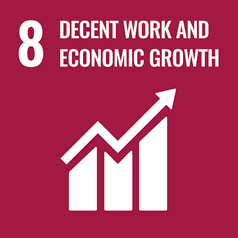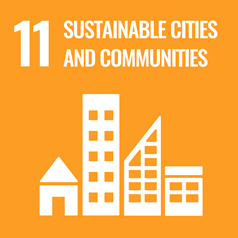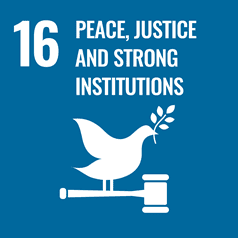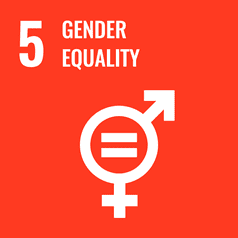
Dr Caitlin Mollica
Senior Lecturer
Newcastle Business School (Management)
- Email:caitlin.mollica@newcastle.edu.au
- Phone:0240553007
Bringing youth-led peacebuilding into policy and practice
Young people are building peace every day. Through her research, Dr Caitlin Mollica is making these contributions visible to inform governments and other key stakeholders on strategies for more responsive, inclusive policy and practice.
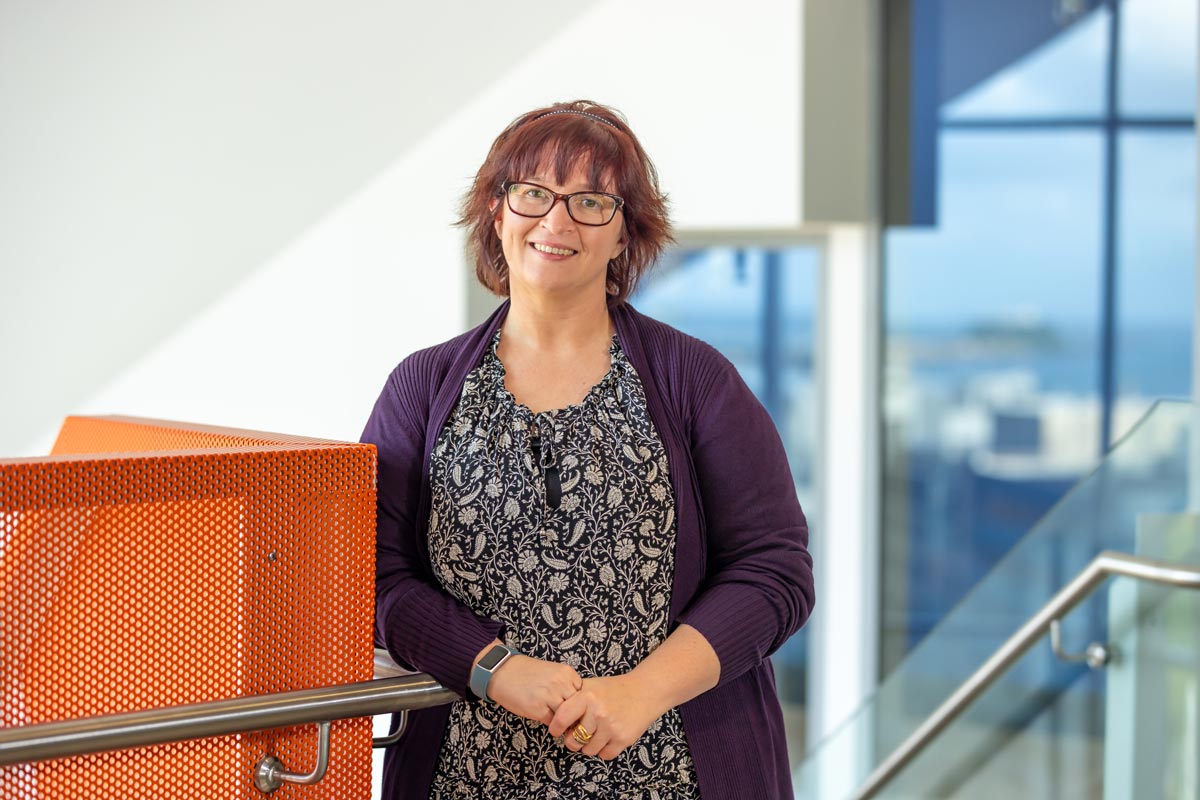
Caitlin's background includes a PhD in Political Science from Griffith University and an MA in Human Rights Studies from Columbia University. She’s also worked in the public service and the NGO community.
Her engagement with the youth, peace and security agenda and transitional justice practices has led to her becoming an emerging expert in peace and conflict.
She’s established an international reputation for work that has a direct policy impact, including its use in training peacebuilders and supporting youth peacebuilders in demonstrating the impact of their work.
This has been achieved through the publication of public-facing policy reports that empirically demonstrate the work being conducted by youth peacebuilders.
To amplify youth knowledge and expertise, her work prioritises inclusive research approaches, which centre youth stories and empower youth to lead in the research process through peer-to-peer dialogue.
Thanks to her research, Caitlin has advanced contemporary debates regarding the importance of transforming political and justice institutions to enable more responsive access for traditionally marginalised groups.
Both conceptually and methodologically, her research provides insights to improve the interaction of youth and women within local communities and with policymakers.
Peacebuilding, transitional justice and young people
Peacebuilding and transitional justice are essential political processes for societies emerging from violence.
The methods and approaches are varied and diverse but aim to create peaceful and inclusive communities by including a diverse range of individuals in political decisions and providing better access to justice and social support.
Caitlin’s body of work has informed understanding of the importance of young peoples’ participation and voices.
Using archival evidence and interviews, her work reveals the importance of political will and agency in realising transitional justice and peacebuilding practices that are substantively inclusive of individuals traditionally marginalised by post-conflict institutions, most notably youth.
Negative social stereotypes, which cast them as a problem to be managed, have seen youth often excluded. They’re viewed as being vulnerable and needing protection or as causing conflict and trouble, especially males. But the reality is they are crucial leaders and agents of change.
“My work is motivated by the recognition that the institutional silencing and exclusion of youth from formal peace and justice practices directly impacts the capacity of post-conflict communities to maintain peace,” says Caitlin.
Youth are not just the next generation. They’re also leaders now, and with their knowledge and capabilities, their contributions are endless.
They’re mediators, teachers, community mobilisers, humanitarian workers and peace brokers. We need to see and interact with youth as diverse stakeholders to peace, not as a singular identity.
Highlighting the value of inclusive peace
“I believe that it’s possible to create more inclusive institutions that work for and support the needs and interests of young people whose communities are emerging from violence and instability," Caitlin continues.
“Youth are key stakeholders in this process and are already leading in their communities and implementing practices for peace outside the institutional structures.”
By working with youth as knowledge producers and empowering them to tell their stories about how they have led peacebuilding efforts, her work is having a direct policy impact by informing policymakers on ways to reframe understandings of how peace work is done and by who.
It also has the potential to inform how funding models engage with youth as partners for peace through the development of an empirical evidence base that reveals current strategies for investing in youth-led peace work.
These strategies can be used to inform how governments, including Australia, distribute aid and determine their partnership and development policies within the Asia-Pacific region.
Internal and public-facing impacts
So how exactly is Caitlin’s work being recognised globally, and what is its practical impact?
“My research has been used to train peace practitioners at the UN on the youth, peace and security agenda,” says Caitlin.
The public-facing elements of her work are being used by youth peacebuilders to demonstrate the impact of their peace work to secure more financing and support.
“By providing an evidence base of the types of programmes and practices being created and implemented by youth, my research makes visible the contributions and value of youth leadership to structures and institutions that have traditionally excluded them.”
Supporting future peacemakers
Caitlin is happy her research can be used to provide support to youth peacebuilders who are doing vital work in their communities.
“I’m excited by the opportunities to speak with youth peacebuilders about their contributions to peace and development, she says.
“I’m also thrilled to have the chance to provide support and training to young people as they develop their research skills in ways that allow them to contribute to global debates as producers of knowledge.
“Empowering youth by providing them with skills to ensure that the value of their voices is visible and taken seriously is such an important contribution of my work.”
By amplifying the stories of youths’ work, giving them the tools to demonstrate the impact of their work and highlighting their contributions as knowledge producers within broader global discussions of what it means to have inclusive peace, Caitlin is contributing to efforts towards more sustainable and lasting peace.
Bringing youth-led peacebuilding into policy and practice
Young people are building peace every day. Through her research, Dr Caitlin Mollica is making these contributions visible to inform governments and other key stakeholders on strategies for more responsive, inclusive policy and practice.
Career Summary
Biography
Dr Caitlin Mollica is a Lecturer in Politics at the Newcastle Business School.
Caitlin's research is interested in youth agency and participation, transitional justice, gender, access to justice and human rights. Her work applies a human rights approach to post-conflict policy to reveal the factors that enable and the barriers that constrain inclusive governance. Her primary research considers the engagement of young people with transitional justice, reconciliation and human rights practices in the Asia-Pacific. Caitlin's work draws on international relations, international law and feminist theories to explore these themes.
Her current research examines the relationship between youth-led organisations and donors in the context of the international mandate for youth-inclusive peacebuilding outlined in United Nations Resolution 2250 on Youth, Peace and Security.
Caitlin has a PhD in Political Science from Griffith University and an MA in Human Rights Studies from Columbia University. She has worked in the public service and the NGO community.
Qualifications
- Doctor of Philosophy, Griffith University
- Master of Arts ( Human Right Studies), Columbia University - New York - USA
Keywords
- access to justice
- gender
- international relations
- research methods
- transitional justice
- youth
- youth political participation
Fields of Research
| Code | Description | Percentage |
|---|---|---|
| 440808 | International relations | 50 |
| 440810 | Peace studies | 50 |
Professional Experience
UON Appointment
| Title | Organisation / Department |
|---|---|
| Senior Lecturer | University of Newcastle Newcastle Business School Australia |
Publications
For publications that are currently unpublished or in-press, details are shown in italics.
Book (2 outputs)
| Year | Citation | Altmetrics | Link |
|---|---|---|---|
| 2026 | Fisher KJ, Mollica C, 'Parents, Children, and the Ripples of Transitional Justice' (2026) | ||
| 2024 | Mollica C, 'Agency and Ownership in Reconciliation Youth and the Practice of Transitional Justice' (2024) [A1] |
Chapter (8 outputs)
| Year | Citation | Altmetrics | Link | |||||
|---|---|---|---|---|---|---|---|---|
| 2026 |
Mollica C, 'Obligation Unfulfilled?: Navigating the Relationships Between Youth, States and the Governance Architecture', Part F888, 125-130 (2026)
|
|||||||
| 2024 |
Mollica C, 'Youth and transitional Justice: Interrogating formal and informal sites of engagement', 153-168 (2024) [B1]
|
|||||||
| 2024 |
Mollica C, '8 Youth and transitional justice', 153-168 (2024)
|
|||||||
| 2023 |
Mollica C, 'Creating Inclusive Reconciliation and Reporting Spaces with Children: Valuing Their Stories', 31-44 (2023) [B1]
|
Open Research Newcastle | ||||||
| 2017 |
Mollica C, 'Youth engagement in the Solomon Islands TRC process', 171-201 (2017) [B1]
|
|||||||
| Show 5 more chapters | ||||||||
Journal article (8 outputs)
| Year | Citation | Altmetrics | Link | |||||
|---|---|---|---|---|---|---|---|---|
| 2026 |
Biddolph C, Mollica C, 'Reimagining transitional justice for a less violent, more inclusive world', International Journal of Human Rights, 30, 1-24 (2026)
|
|||||||
| 2026 |
Nash K, Mollica C, Senior K, 'Talking About the Voice: Everyday Political Talk About Indigenous Constitutional Recognition', International Journal of Communication, 20, 48-66 (2026) [C1]
|
Open Research Newcastle | ||||||
| 2025 |
Berents H, Mollica C, Odgers-Jewell C, Payne H, Spalding S, 'Conducting Care-full Research: Collaborative Research amidst Corona, a Coup, and Other Crises', INTERNATIONAL STUDIES PERSPECTIVES [C1]
|
|||||||
| 2022 |
Mollica C, Davies SE, True J, Eddyono SW, Fonseka B, Johnston M, 'Women and the Justice Divide in Asia Pacific: How can Informal and Formal Institutions Bridge the Gap?', Human Rights Quarterly, 44, 612-639 (2022) [C1]
|
Open Research Newcastle | ||||||
| 2021 |
Berents H, Mollica C, 'Reciprocal institutional visibility: Youth, peace and security and 'inclusive' agendas at the United Nations', COOPERATION AND CONFLICT, 57, 65-83 (2021) [C1]
|
|||||||
| 2017 |
Jeffery R, Mollica C, 'The unfinished business of the Solomon Islands TRC: closing the implementation gap', PACIFIC REVIEW, 30, 531-548 (2017) [C1]
|
|||||||
| 2017 |
Mollica C, 'The diversity of identity: youth participation at the Solomon Islands Truth and Reconciliation Commission', AUSTRALIAN JOURNAL OF INTERNATIONAL AFFAIRS, 71, 371-388 (2017) [C1]
|
|||||||
| Show 5 more journal articles | ||||||||
Report (2 outputs)
| Year | Citation | Altmetrics | Link |
|---|---|---|---|
| 2021 | Berents H, Mollica C, 'Youth and Peace in the Indo-Pacific: Policy, Practice, Action', 1-15 (2021) | ||
| 2021 | Spalding S, Odgers-Jewell C-J, Payne H, Mollica C, Berents H, 'Making Noise and Getting Things Done: Youth Inclusion and Advocacy for Peace', 1-44 (2021) |
Grants and Funding
Summary
| Number of grants | 7 |
|---|---|
| Total funding | $195,861 |
Click on a grant title below to expand the full details for that specific grant.
20243 grants / $178,705
Equitable Learning for Students with Invisible Disabilities in Higher Education$135,599
Funding body: Australian Centre for Student Equity and Success (ACSES)
| Funding body | Australian Centre for Student Equity and Success (ACSES) |
|---|---|
| Project Team | Dr Caitlin Mollica, Prof Amy Maguire, Associate Professor Fiona McGaughey, Dr Stephenson Chow, Stephenson Chow |
| Scheme | Large Grants Research Program |
| Role | Lead |
| Funding Start | 2024 |
| Funding Finish | 2025 |
| GNo | G2400533 |
| Type Of Funding | C1500 - Aust Competitive - Commonwealth Other |
| Category | 1500 |
| UON | Y |
24-015 Gilgandra Region Youth Strategy$39,606
Funding body: Gilgandra Shire Council
| Funding body | Gilgandra Shire Council |
|---|---|
| Project Team | Prof Kate Senior, Dr Caitlin Mollica |
| Scheme | Research Consultancy |
| Role | Investigator |
| Funding Start | 2024 |
| Funding Finish | 2024 |
| GNo | G2401245 |
| Type Of Funding | Scheme excluded from IGS |
| Category | EXCL |
| UON | Y |
CHSF 2024 Conference Travel Scheme$3,500
Funding body: College of Human and Social Futures | University of Newcastle
| Funding body | College of Human and Social Futures | University of Newcastle |
|---|---|
| Project Team | Dr Caitlin Mollica |
| Scheme | CHSF - Conference Travel Scheme |
| Role | Lead |
| Funding Start | 2024 |
| Funding Finish | 2024 |
| GNo | |
| Type Of Funding | Internal |
| Category | INTE |
| UON | N |
20233 grants / $12,156
CHSF - New Start Grant 2023$5,000
Funding body: College of Human and Social Futures | University of Newcastle
| Funding body | College of Human and Social Futures | University of Newcastle |
|---|---|
| Scheme | CHSF - New Start Scheme |
| Role | Lead |
| Funding Start | 2023 |
| Funding Finish | 2023 |
| GNo | |
| Type Of Funding | Internal |
| Category | INTE |
| UON | N |
The Human Right to Education in the Australian Context$4,656
Funding body: University of Newcastle
| Funding body | University of Newcastle |
|---|---|
| Project Team | Prof Amy Maguire, Dr Stephenson Chow, Dr Donna Mc Namara, Dr Caitlin Mollica |
| Scheme | Pilot Funding Scheme |
| Role | Investigator |
| Funding Start | 2023 |
| Funding Finish | 2023 |
| GNo | G2300461 |
| Type Of Funding | Internal |
| Category | INTE |
| UON | Y |
CHSF Conference Travel Grant$2,500
Funding body: College of Human and Social Futures | University of Newcastle
| Funding body | College of Human and Social Futures | University of Newcastle |
|---|---|
| Scheme | CHSF - Conference Travel Scheme |
| Role | Lead |
| Funding Start | 2023 |
| Funding Finish | 2023 |
| GNo | |
| Type Of Funding | Internal |
| Category | INTE |
| UON | N |
20221 grants / $5,000
Assessing the Impact of Funding Partnerships for Youth Inclusive Peace$5,000
Funding body: College of Human and Social Futures | University of Newcastle
| Funding body | College of Human and Social Futures | University of Newcastle |
|---|---|
| Scheme | CHSF - Matched Funding |
| Role | Lead |
| Funding Start | 2022 |
| Funding Finish | 2022 |
| GNo | |
| Type Of Funding | Internal |
| Category | INTE |
| UON | N |
Dr Caitlin Mollica
Position
Senior Lecturer
Newcastle Business School
College of Human and Social Futures
Focus area
Management
Contact Details
| caitlin.mollica@newcastle.edu.au | |
| Phone | 0240553007 |

